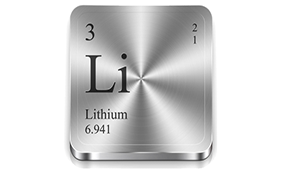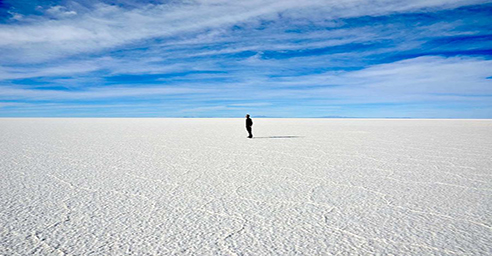
Bolivia picks Chinese partner for $2.3B lithium project


China's Xinjiang TBEA Group Co Ltd will hold a 49 percent stake in a joint venture with Bolivia's state lithium company YLB, the Bolivian firm said. Together, the two companies will produce lithium and other materials from the Coipasa and Pastos Grandes salt flats in the Bolivian Andes, with an estimated investment of at least $2.3 billion.
Bolivia has some of the world's largest reserves of lithium – a key component in batteries that power electric cars, laptops and cellphones – but has yet to produce the metal at a commercial scale.
The preliminary deal gives Beijing a second chance in Bolivia after German firm ACI Systems GmbH was chosen last year over Chinese rivals as strategic partner on Bolivia's largest lithium deposit in the salt flats of Uyuni.
Xinjiang TBEA beat six rivals that also sought to partner with Bolivia on Coipasa and Pastos Grandes, including ACI, Uranium One – a subsidiary of Russia's state nuclear company Rosatom – and the Irish company Clontarf Energy Plc.
China's ambassador in La Paz, Liang Yu, hailed the agreement as "historic" at a ceremony with Bolivian officials in the highland city of Oruro, broadcast on the state TV channel.
China, the biggest global consumer of lithium, will need 800,000 tonnes of it per year by 2025 to support its growing electric vehicle industry, he said.
"We're going to establish a strategic alliance," Liang said.
There are no official estimates yet for how much lithium Coipasa and Pastos Grandes hold.
Bolivia said last month that a new study found that Uyuni likely has at least 21 million tonnes of lithium, more than double a previous estimate.
YLB and Xinjiang TBEA will produce hydroxide, lithium carbonate and lithium chloride from Coipasa and Pastos Grandes, as well as potassium sulfate, boric acid and sodium brome, YLB said.


Trump weighs using $2 billion in CHIPS Act funding for critical minerals

Codelco cuts 2025 copper forecast after El Teniente mine collapse

Electra converts debt, launches $30M raise to jumpstart stalled cobalt refinery

Barrick’s Reko Diq in line for $410M ADB backing

Abcourt readies Sleeping Giant mill to pour first gold since 2014

Nevada army depot to serve as base for first US strategic minerals stockpile

SQM boosts lithium supply plans as prices flick higher

Viridis unveils 200Mt initial reserve for Brazil rare earth project

Tailings could meet much of US critical mineral demand – study

Kyrgyzstan kicks off underground gold mining at Kumtor

Kyrgyzstan kicks off underground gold mining at Kumtor

KoBold Metals granted lithium exploration rights in Congo

Freeport Indonesia to wrap up Gresik plant repairs by early September

Energy Fuels soars on Vulcan Elements partnership

Northern Dynasty sticks to proposal in battle to lift Pebble mine veto

Giustra-backed mining firm teams up with informal miners in Colombia

Critical Metals signs agreement to supply rare earth to US government-funded facility

China extends rare earth controls to imported material

Galan Lithium proceeds with $13M financing for Argentina project

Kyrgyzstan kicks off underground gold mining at Kumtor

Freeport Indonesia to wrap up Gresik plant repairs by early September

Energy Fuels soars on Vulcan Elements partnership

Northern Dynasty sticks to proposal in battle to lift Pebble mine veto

Giustra-backed mining firm teams up with informal miners in Colombia

Critical Metals signs agreement to supply rare earth to US government-funded facility

China extends rare earth controls to imported material

Galan Lithium proceeds with $13M financing for Argentina project

Silver price touches $39 as market weighs rate cut outlook

















